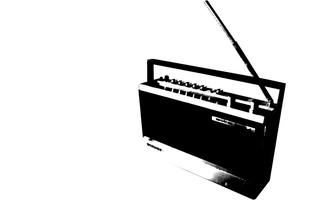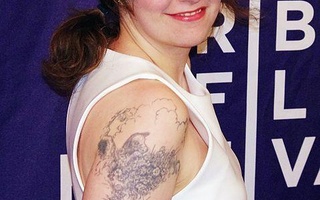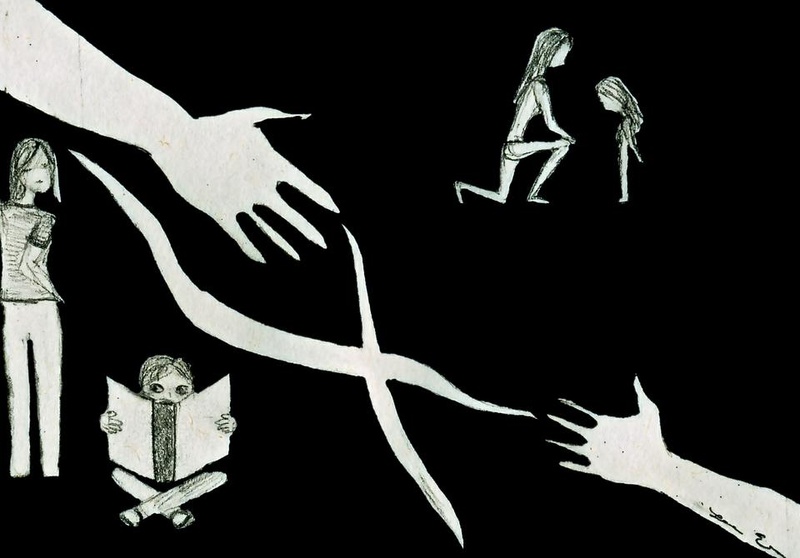Depicting purely mental sequences in a predominantly visual format like that of a graphic novel is never an easy task, and Alison Bechdel sets a high bar for herself in her carefully-constructed, cerebral memoir, “Are You My Mother?” Those waiting for a follow-up to Bechdel’s bestselling graphic novel “Fun Home” will not be disappointed. However, this latest book is, rather than a strict sequel, an enlargement on the ongoing excavation of her own life. “Fun Home” delved into revelations about her father’s covert affairs with men and possible suicide as well as Bechdel’s own struggle with her sexuality. “Are You My Mother?” turns its gaze from one parent to the other. In looking at her mother, Bechdel covers both memories and the therapy that came later, biographies of family members and inspirational figures alike, and even recounts the act of creating the memoir itself. The novel, which Bechdel’s mother accurately calls a “metabook,” often obscures, rather than reveals, her intertwined narrative, a quietly heartbreaking emotional core that even Bechdel seems to realize she can’t quite articulate.
“Are You My Mother?” draws on a variety of sources to trace Bechdel’s recollections. The novel includes dream sequences, therapy sessions, various girlfriends, bedtime reading, and psychoanalytical excerpts. Sometimes she and her mother converse; at others, Bechdel just observes her putting on makeup, watching TV, or acting on stage. Bechdel’s obsessive journaling from a young age provided her with ample and accurate material for the labyrinthine storyline of “Fun Home.” In “Are You My Mother?” however, her vast resources make the narrative almost overwhelming. In “Fun Home,” Bechdel reached a kind of closure about her father’s secret life and sudden death. Yet “Are You My Mother?” provides only a glimpse into an ongoing relationship from the perspective of a daughter trying to understand its intricacies. The mother in question remains, in many ways, an enigma, impossible to properly translate into memoir.
Bechdel’s artistic style, marked by precise attention to detail, has evolved since the publication of “Fun Home.” Her meticulousness affected her work even as a child, when her mother took to transcribing her journal in order to bypass the neurotic habits that made Bechdel’s entries take hours to write. She still notoriously photographs herself as a model for every panel (something she references at one point in the story) and painstakingly researches her sets. In “Fun Home,” Bechdel added a blue-gray wash to her customary black line art, which she refined and combined with crosshatched copies of photographs, architectural layouts, maps, and other unusual imagery. In “Are You My Mother?” she layers red and gray washes and relies heavily on hand-drawn snapshots of pages from books and journals for an unusual presentation. “Fun Home” recounted a set of intimate revelations within a fairly strict frame, while “Are You My Mother?” places a series of mainly internal upheavals on pages that play, subtly, with conventional comic form and content.
For the most part, Bechdel maintains her simple, clear technique, but breaks out of her usual smoothness at moments of extreme emotion, crumpling and marring characters’ faces—especially her own. This seems partly due to her story’s confessional nature, but at times seems connected to Bechdel’s realization of her and her mother’s advancing age. Suddenly, her familiar self-portrait has a lined face. She links her book to the onset of menopause: “My clockworklike menstrual cycle skipped its very first beat the very week, in my forty-fifth year,” she writes, “that I sat down to begin writing about my mother.” Despite these new elements—the gray-black wash, the heightened portrayal of emotion, the awareness of mortality—“Are You My Mother?” is not necessarily darker than Bechdel’s debut memoir. At the same time, the book illuminates less about her relationship with her mother than the reader might hope.
There are no easy stories in “Are You My Mother?” and, despite her graceful narrative, Bechdel struggles to tell them. Every scene is rich with effort and symbolism. For example, the story starts in Bechdel’s car, where she’s deciding how to tell her mother she’s writing “Fun Home.” Suddenly, a truck swerves in front of her: it’s a Sunbeam Bread truck, the same kind that killed her father. After this near-death experience, the sequence finishes by depicting the conversation Bechdel had been planning to have with her mother. “You mean, this is something you have to do?” her mother asks bluntly, “I can’t help you. You’re on your own.” Later, once she has a finished script, Bechdel tells her mother, “I have no idea what you went through.” She replies, “No, you don’t. I just can’t imagine how you’re going to draw it all.” Bechdel seems, at times, to encounter more roadblocks than breakthroughs, but doesn’t shy away from portraying either.
Bechdel perseveres in transferring her story in print, first with “Fun Home” and again with “Are You My Mother?” She recounts, again and again with terrible accuracy, memories of her mother interchanged with scenes with her current therapist, girlfriend, or psychoanalyst. We’re privy not only to Bechdel’s memories but to her efforts to understand what they mean, using a complex vocabulary of psychological terms. We see her, a daughter, a sister, a lover, a patient, an author, and more, reflected and distorted through efforts to put her family on paper. Though Bechdel ends the novel with a resolution, nothing has truly been decided. She bravely reveals years of journaling, therapy, and conversations, but Bechdel’s relationship with her mother, and her understanding of that relationship, is still evolving. “Are You My Mother?” seeks to encompass a complex, personal set of memories and interpretations, and, in doing so, quietly chronicles the difficulties of sketching a lifetime.
—Staff writer Natalie DuP. C. Panno can be reached at npanno@fas.harvard.edu.
Read more in Arts
BSO Masterfully Performs Brahms's 'Requiem'Recommended Articles
-
 Recap: "The Lover"
Recap: "The Lover" -
Korean Filmmaker Bong is a Hit at HFA“This movie is often called a thriller or suspense, but it is simply about a mother... although this movie is ...
-
 I Want You Not So Far Away From Me
I Want You Not So Far Away From Me -
 Mother's Dedication Motivates Wright
Mother's Dedication Motivates Wright -
No Bad Blood for Fratricidal ‘Cain & Cain’Through innovative set design and striking acting, “Cain and Cain” weaves together themes of family, love, and death and alludes to the biblical story of the brothers Cain and Abel.
-
 'Girls,' Season Two: We Just Want To Have Fun
'Girls,' Season Two: We Just Want To Have Fun














